As China’s economy and society develop rapidly, the question of how to realize energy transition and development has received increasing attention. How to reduce carbon emissions and achieve a high proportion of renewable energy development? The formulation of the 14th Five-Year Plan for energy development has become an important topic for discussion during the ‘two sessions’. From 20:30 to 22:20 on the evening of May 26, the online seminar on ‘NPC deputies look forward to the energy revolution and the Energy Planning of the 14th Five-Year Plan’ hosted by the Research Center for Energy Transition and Social Development of Tsinghua University was successfully held.
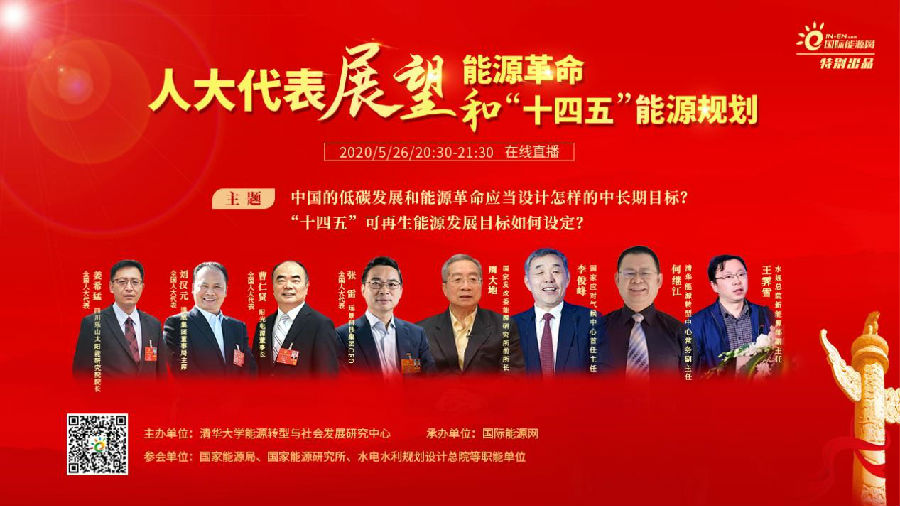
NPC deputies look forward to the energy revolution and the Energy Planning of the 14th Five-Year Plan
Four NPC deputies attendie this seminar, including: Jiang Ximeng, Dean of Leshan Solar Energy Research Institute; Liu Hanyuan, Chairman of Tongwei Group Board; Cao Renxian, Chairman of Sungrow; Zhang Lei, CEO of Yuanjing Technology Group. Four energy experts attended the meeting as guests, including: Zhou Dadi, Former Director of the Energy Research Institute of the National Development and Reform Commission; Li Junfeng, the first Director of the National Center for Climate Change; Wang Jixue, Deputy Director of the New Energy Department of the General Institute of Water Resources; Dai Yande, Former Director of the Energy Institute of the National Development and Reform Commission attended the meeting in written form. Topics like ‘What medium and long-term goals should China's low-carbon development and energy revolution design? How to set the development goals for the '14th Five-Year Plan'?’ are heatedly discussed by the NPC deputies and energy experts.
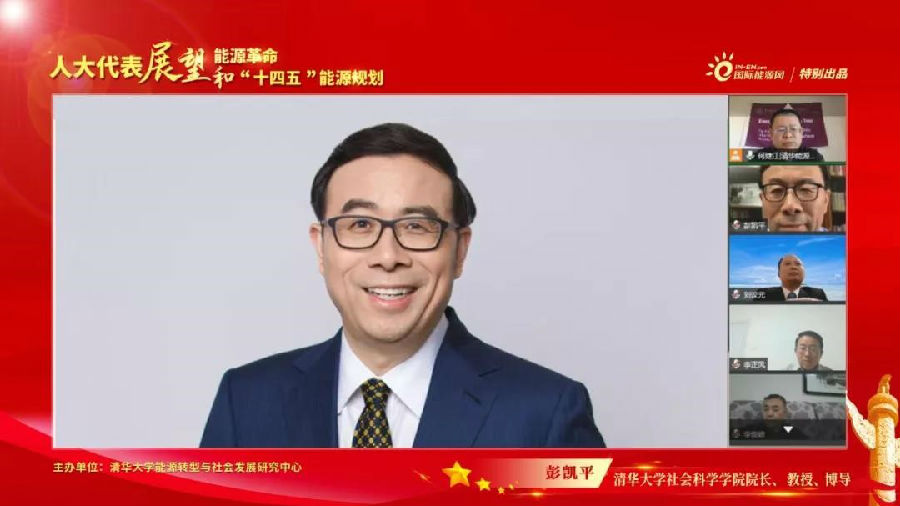
Dean of Tsinghua University’s School of Social Sciences Peng Kaiping
Peng Kaiping, Dean of Tsinghua University’s School of Social Sciences, expressed his gratitude and welcome to NPC deputies, experts and participants in the live broadcast room. The School of Social Sciences of Tsinghua University is not only a faculty with a long history, but also a faculty with a broad vision of the world. The energy transition career that NPC deputies and guests have devoted to is a question that the Academy of Social Sciences has been exploring. We are connected in theory and in the same sense of service to society. The spirit of serving the country and the people is connected. Thank you for your honors, ‘When he is powerful, he is concerned about his people. When he lacks of capacity, he is concerned about his monarch.’ This summit forum will generate sparks of thought and wisdom, and we will jointly play the role of national think tanks and contribute them to the future development of the country.
The meeting was heatedly discussed, covering topics such as carbon emission reduction promotes renewable energy development goal setting, energy security promotes renewable energy development goal setting, whether the proportion of renewable energy in 2050 can exceed 50%, photovoltaic for everyone in 2035, proportion of non-fossil energy in 2030, key actions of the 14th Five-Year Energy Plan, legal guarantees for the development of renewable energy, photovoltaic parity, large-scale photovoltaic desertification bases, and comparison of international goals of energy transition.
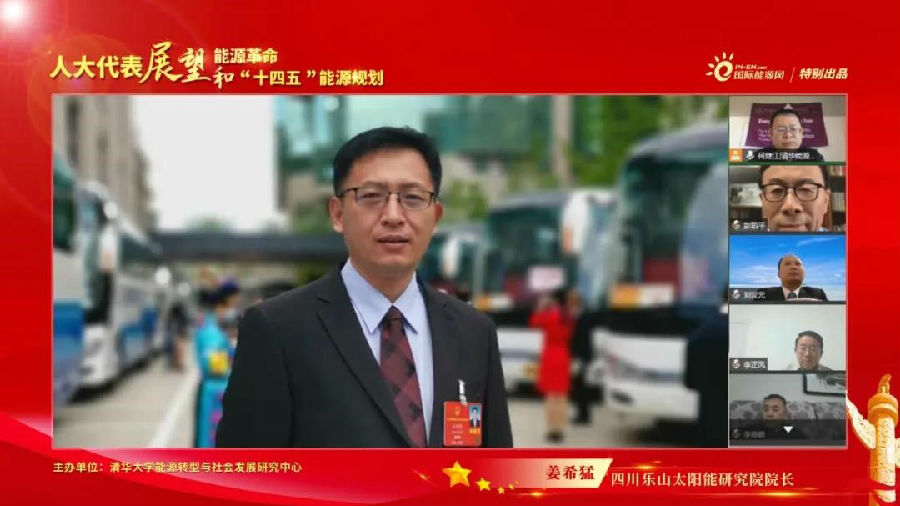
NPC deputy, Dean of Leshan Solar Energy Research Institute Jiang Ximeng
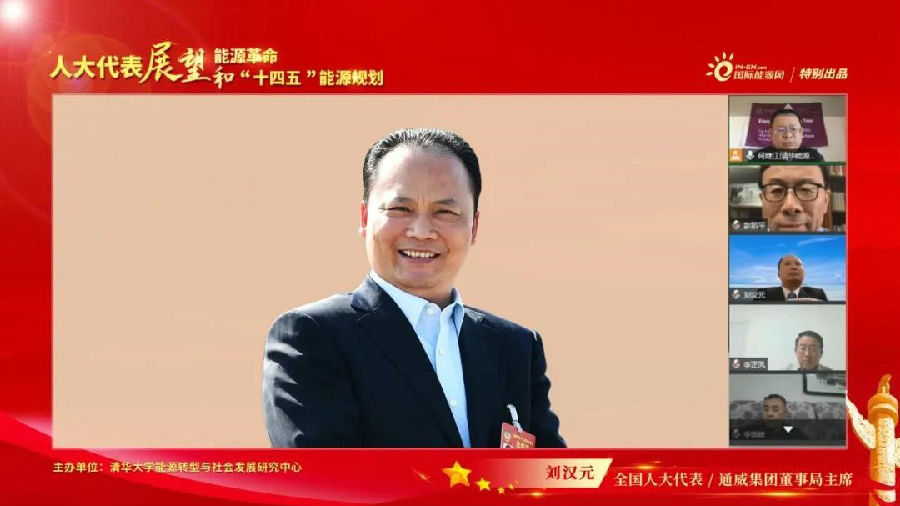
NPC deputy, Chairman of Tongwei Group Board Liu Hanyuan
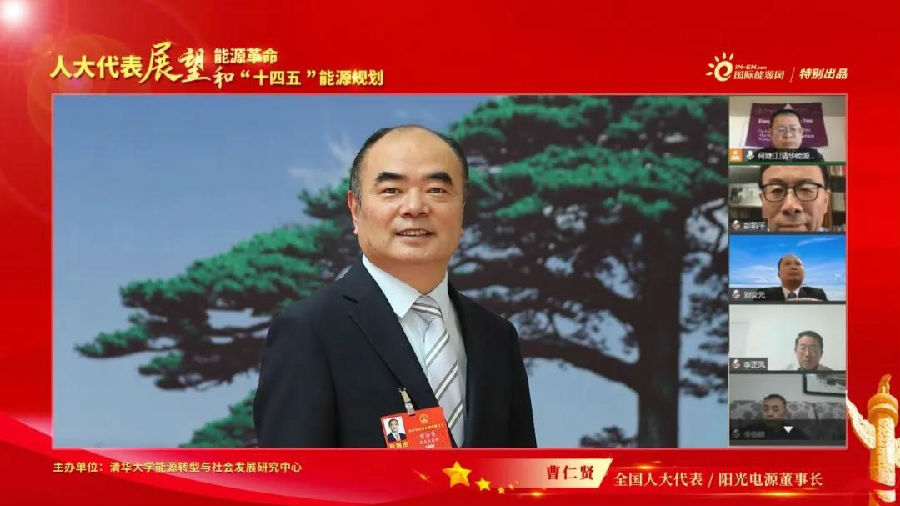
NPC deputy, Chairman of Sungrow Cao Renxian
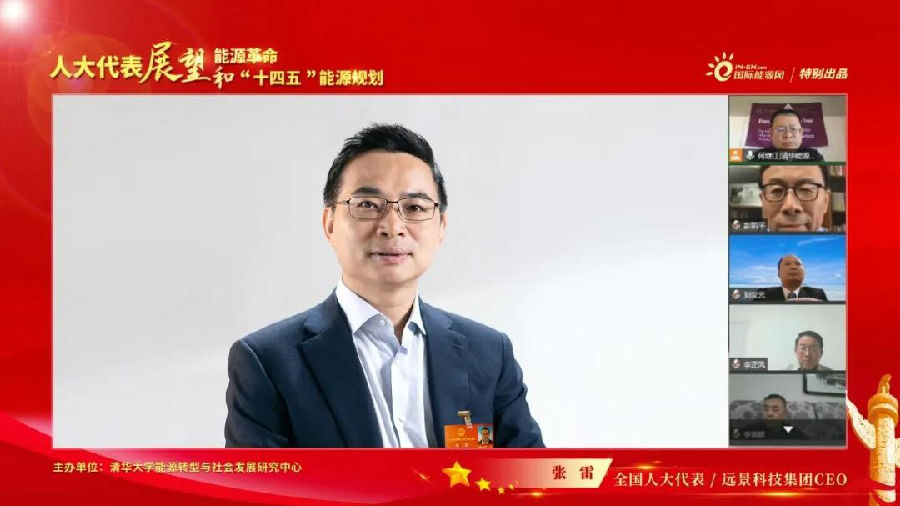
NPC deputy, CEO of Yuanjing Technology Group Zhang Lei
After the discussion, NPC deputies reached consensus with industry experts that the development of renewable energy development planning goals should be forward-looking, and we should jointly shape the future we look forward together. We must use technology, knowledge, and wisdom to shape the ‘efficient, clean, and carbon-free sustainable modern energy system’ that we expect. They also expressed their earnest expectations for the long-term goal of net zero carbon emissions by 2050, and expressed their firm confidence in using science and technology to promote energy transition, promote social development, and build an ecological civilization.
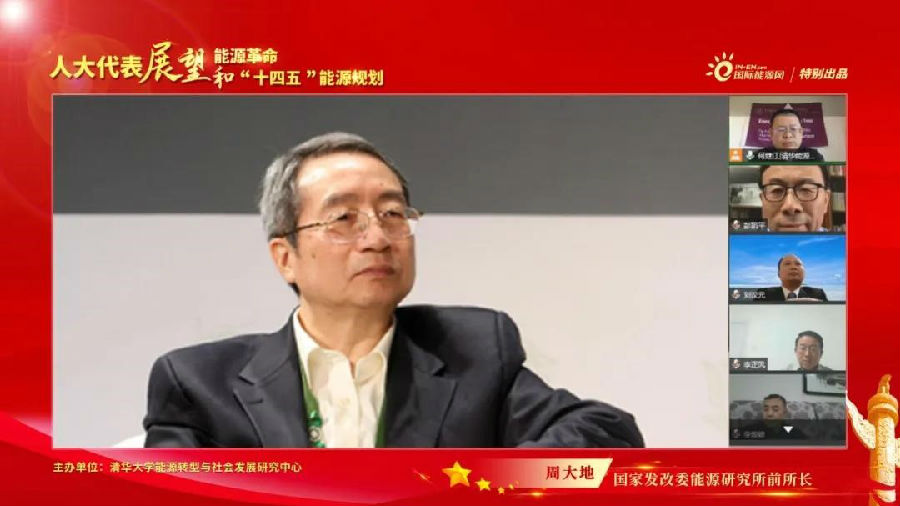
Former Director of the Energy Research Institute of the National Development and Reform Commission Zhou Dadi
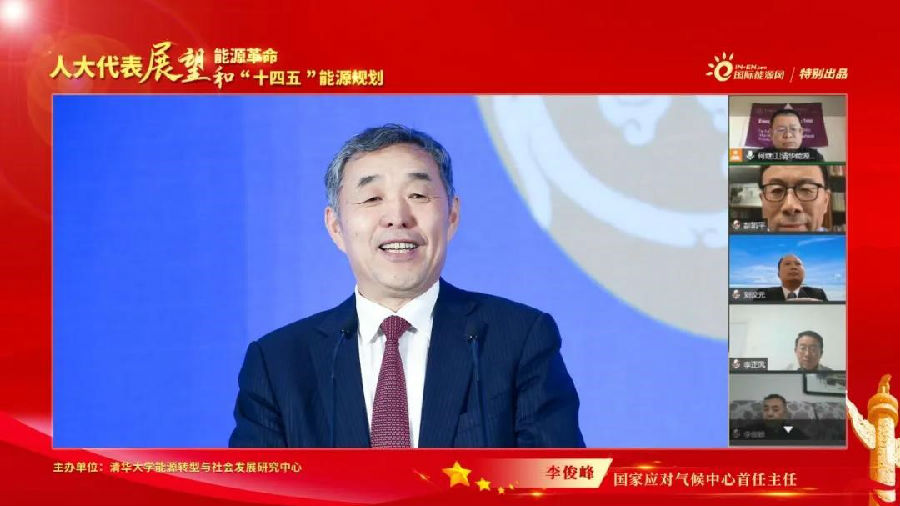
The First Director of the National Center for Climate Change Li Junfeng
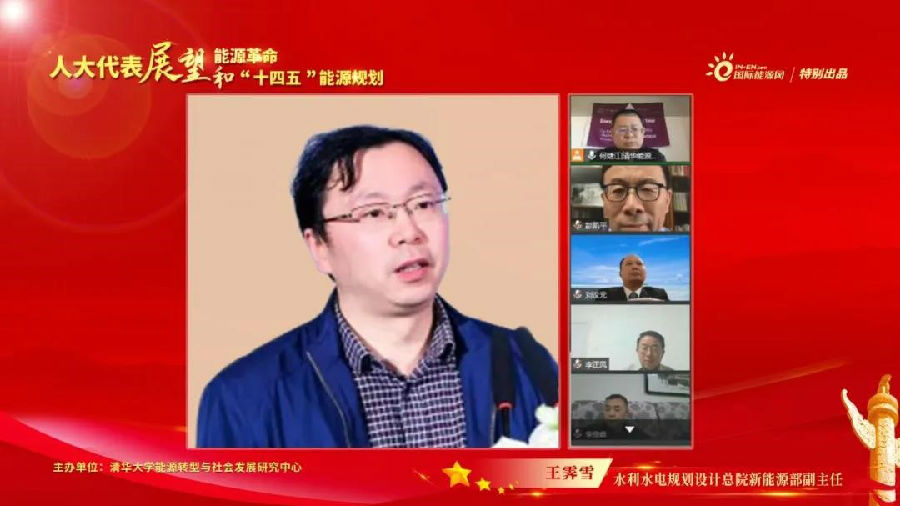
Deputy Director of the New Energy Department of the General Institute of Water Resources Wang Jixue
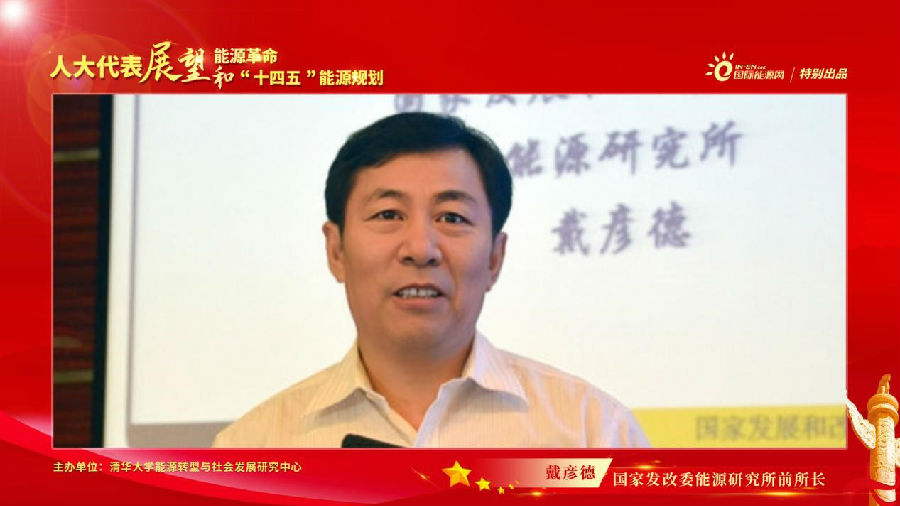
Former Director of the Energy Institute of the National Development and Reform Commission Dai Yande
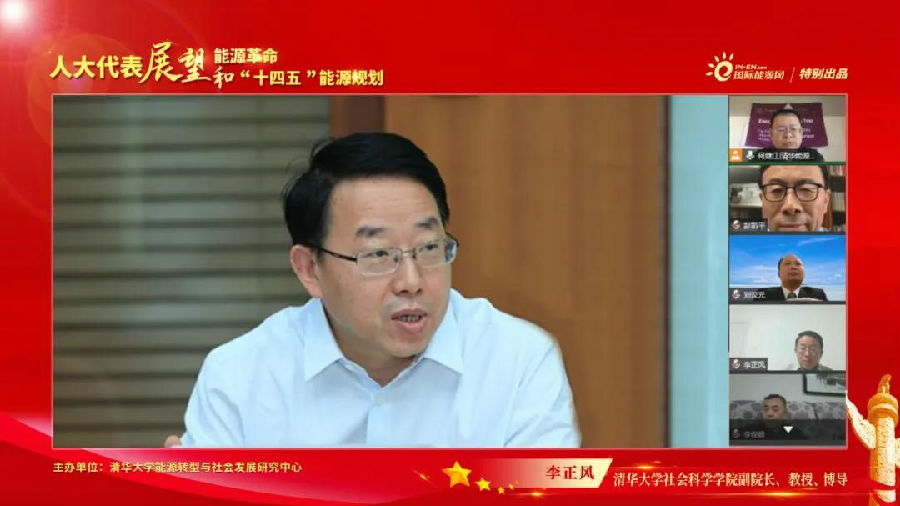
Vice Dean of Tsinghua University’s School of Social Sciences Li Zhengfeng
Li Zhengfeng, Vice Dean of the Tsinghua University’s School of Social Sciences, made a closing speech: ‘An ideal and ambitious future is by no means a simple continuation of today. Our energy development planning implies our pursuit and ideal for the future. Energy transition promotes social development, and social development also promotes energy transition. The design of the future energy system requires a consensus of all sectors of society, and on this basis, we will more actively plan the future of China's energy development.’
Dr. He jijiang, the Executive Deputy Director of Research Center for the Energy Transition and Social Development of Tsinghua University, hosted the meeting. He shared the EU ’s goal of becoming a net-zero emission continent by 2050, and introduced the medium and long term energy transition goals of European countries.
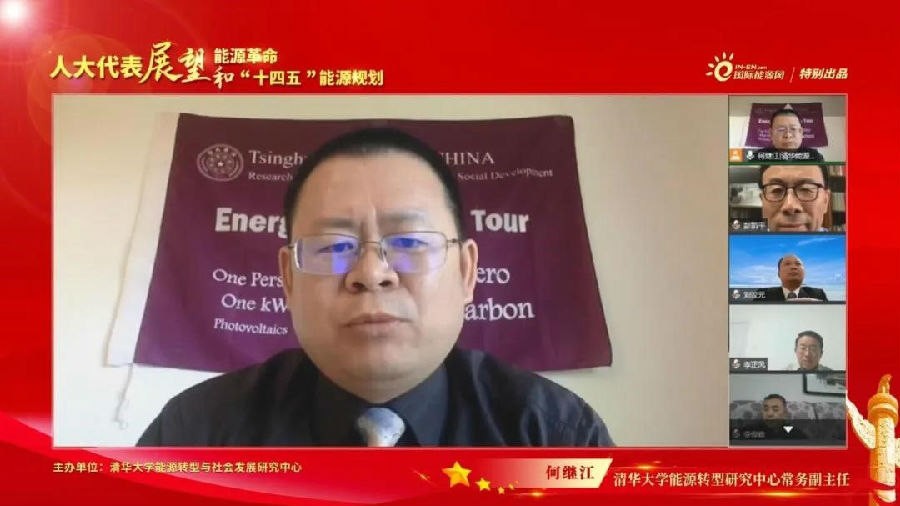
Executive Deputy Director of Research Center for the Energy Transition and Social Development of Tsinghua University He Jijiang
Cloud Forum: the research method of innovating energy planning, the dissemination way of energy ideas
This cloud forum uses the Tencent meeting + WeChat live broadcast model to be open to the public. The international energy network provides live broadcast technology support. There were more than a dozen guests in the Tencent meeting room, and there were a lot of people in the Weizan Live Broadcasting Room. The maximum number of simultaneous online users was 3386, and the total number of views was 19,100.
Leading cadres from several divisions of the National Energy Administration also attended the online conference. Many leading cadres from the National Development and Reform Commission and energy competent departments used the evening break to attend the meeting and came to the live broadcast room to study quietly. Netizens are connected to the live broadcast hall from all over the country. They are grassroots government personnel, universities and research institutions staff, power grids and various energy companies staff, and media personnel. Chinese officials and researchers of UNCCD and the United Nations Environment Agency in Germany and Denmark, as well as friends of foreign institutions such as the German Energy Agency, the German International Cooperation Agency, and the Danish Energy Agency also participated in the meeting remotely. The audience in the live broadcast room also raised hundreds of questions and suggestions to the NPC deputies and participating experts in the form of messages, and offered suggestions for the energy planning of the "Fourteenth Five-Year Plan". This forum, which had to take the form of a cloud because of COVID-19, inadvertently achieved a major innovation. Not only did the number of participants create a scale that is difficult to achieve in physical meetings to spread the ideas, but also such cloud conferences quickly and extensively bring together the opinions of the people across the country and the wisdom of national and global energy experts, so that the opinions of the people can be quickly incorporated into the research and decision-making system of energy planning through the NPC deputies.
The innovation of the research method of energy planning, the innovation of the spread of energy ideas, and the innovation of energy technology, has a strong support for the energy revolution, and will promote China to a new era of ecological civilization.